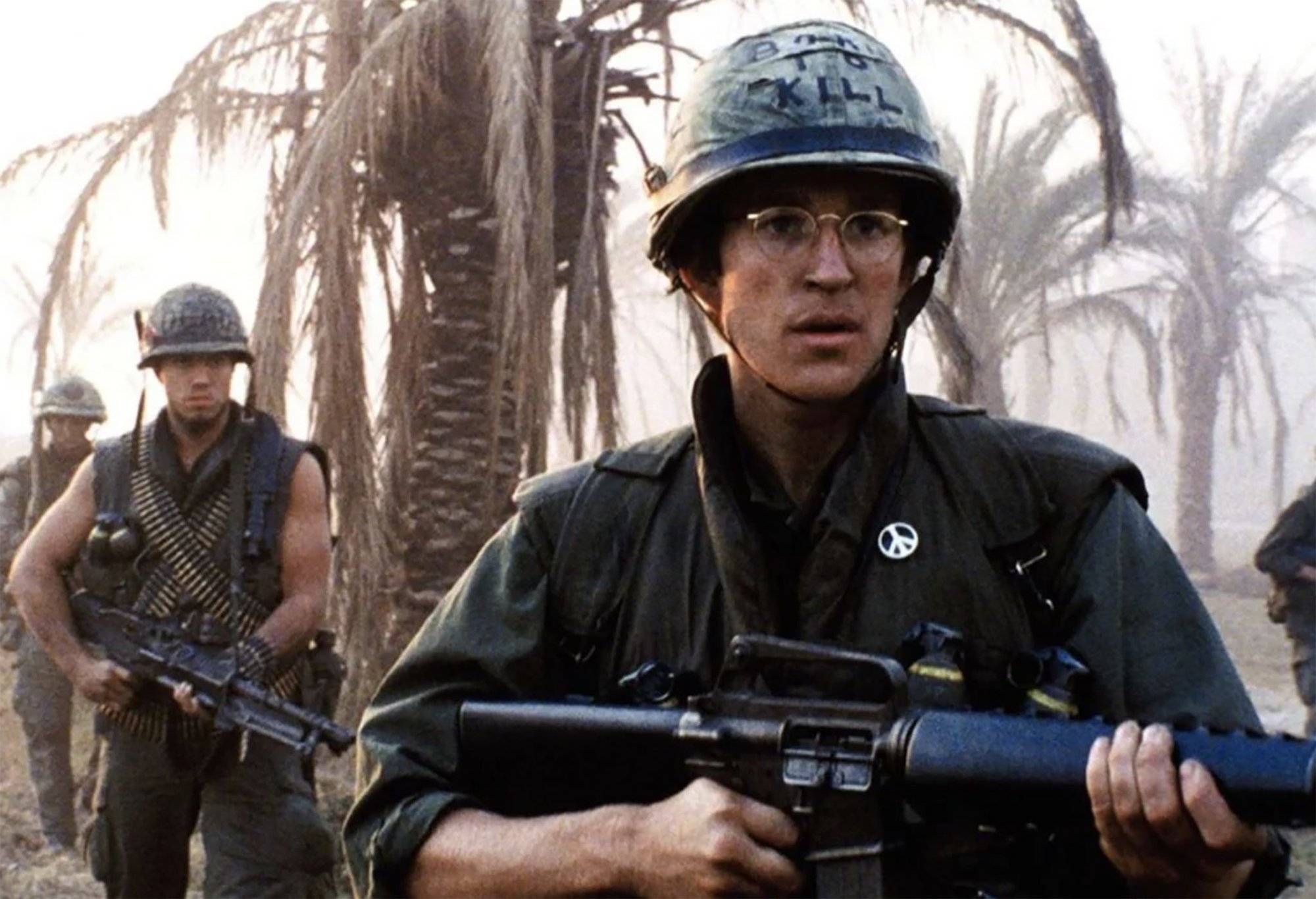
1987’s Full Metal Jacket was much more than just a 2-hour, enrapturing story directed by the late Stanley Kubrick; it’s considered one of the greatest war movies ever recorded on film. It showcases the journey of a recruit as he makes his way through basic training and is thrust onto the dangerous, combative pit known as Vietnam in the late 1960s.
Although Full Metal Jacket has its fair share of inaccuracies, there are plenty of stories behind the stories that most film fans aren’t familiar with — until now.
1. How Pvt. Pyle came about
Before landing the role, talented actor Vincent D’Onofrio was working as a bouncer at one of the Hard Rock Cafes when he ran into Matthew Modine. Modine told D’Onofrio about his role in Kubrick’s new film and how there just happened to be a part available for him.
After D’Onofrio earned the part of “Pyle,” the young actor had to put on some weight to play the clumsy recruit. So, that’s just what D’Onofrio did. He ended up putting on 80 pounds of fat for the role.
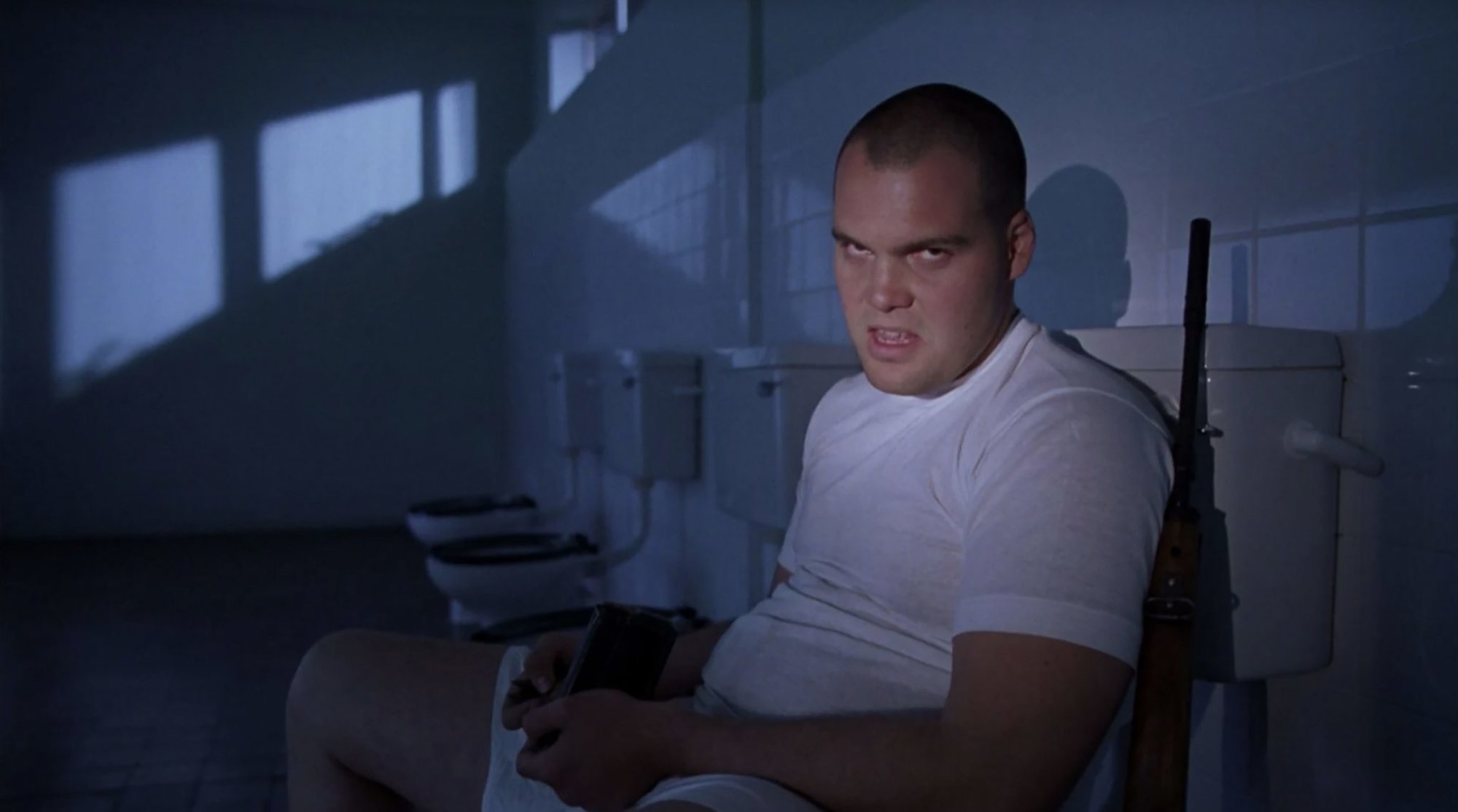
2. The role of Gunny Hartman was recast
Initially, the door gunner (Tim Colceri), who liked to kill women and children with his M60 from high above, was supposed to play the famous role of the Gunny Hartman. Kubrick had originally called on Marine veteran R. Lee Ermey to be the film’s technical advisor.
Once Ermey showed up to teach the group of young actors the basics of being a U.S. Marine, he ended up earning the role — and the rest is cinematic history.
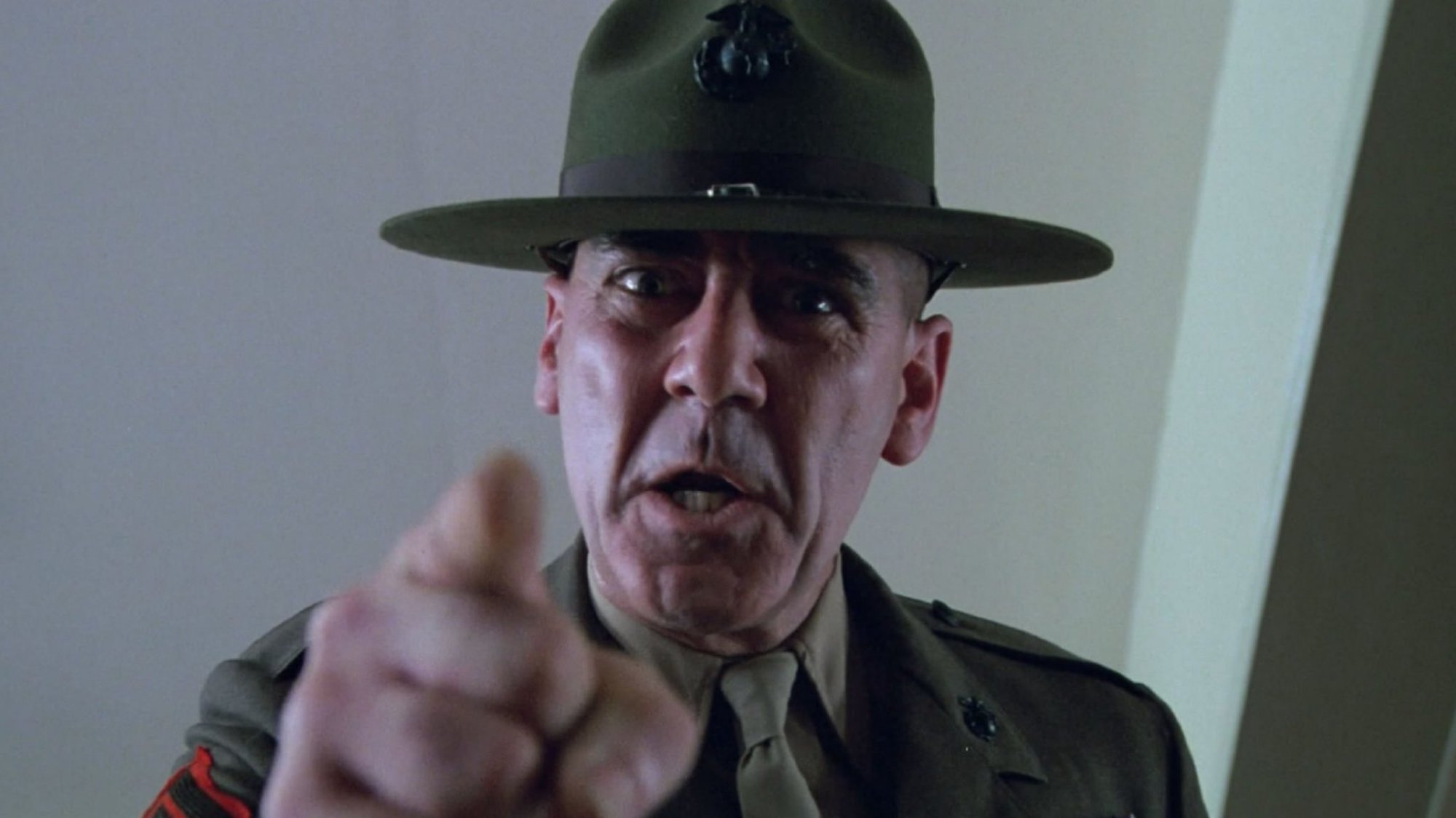
3. R. Lee Ermey came up with his legendary insults on the spot
Once Ermey stepped into his polished shoes, his days of serving in the Corps flooded right back — and so did the way he spoke to the recruits he trained while serving a drill instructor at Parris Island.
“It looks like to me, the best part of you ran down the crack of your momma’s ass and ended up as a brown stain on the mattress.” — Gunny Hartman/R. Lee Ermey
4. The Vietnam set was 10 minutes from Kubrick’s East London home.
Filming a Vietnam war movie in London sounded off at the time. However, Kubrick wanted to shoot the war scenes in an abandoned gasworks in Beckton, London. The location had French architecture similar that of Hue City in the late 1960s. The film’s production design crew had palm trees flown in to decorate the area.
5. There was a bad wreck on a location scout
While searching for a place to film a scene, Kubrick, his wife, and R. Lee Ermey were driving in a brand-new SUV.
Kubrick was known for having a one-track mind and drove the SUV off the road and into a ditch while talking about the scene he wanted to film. After the accident, Kubrick climbed out of the vehicle and moved to the roof of the vehicle, all while continuing to discuss the scene.
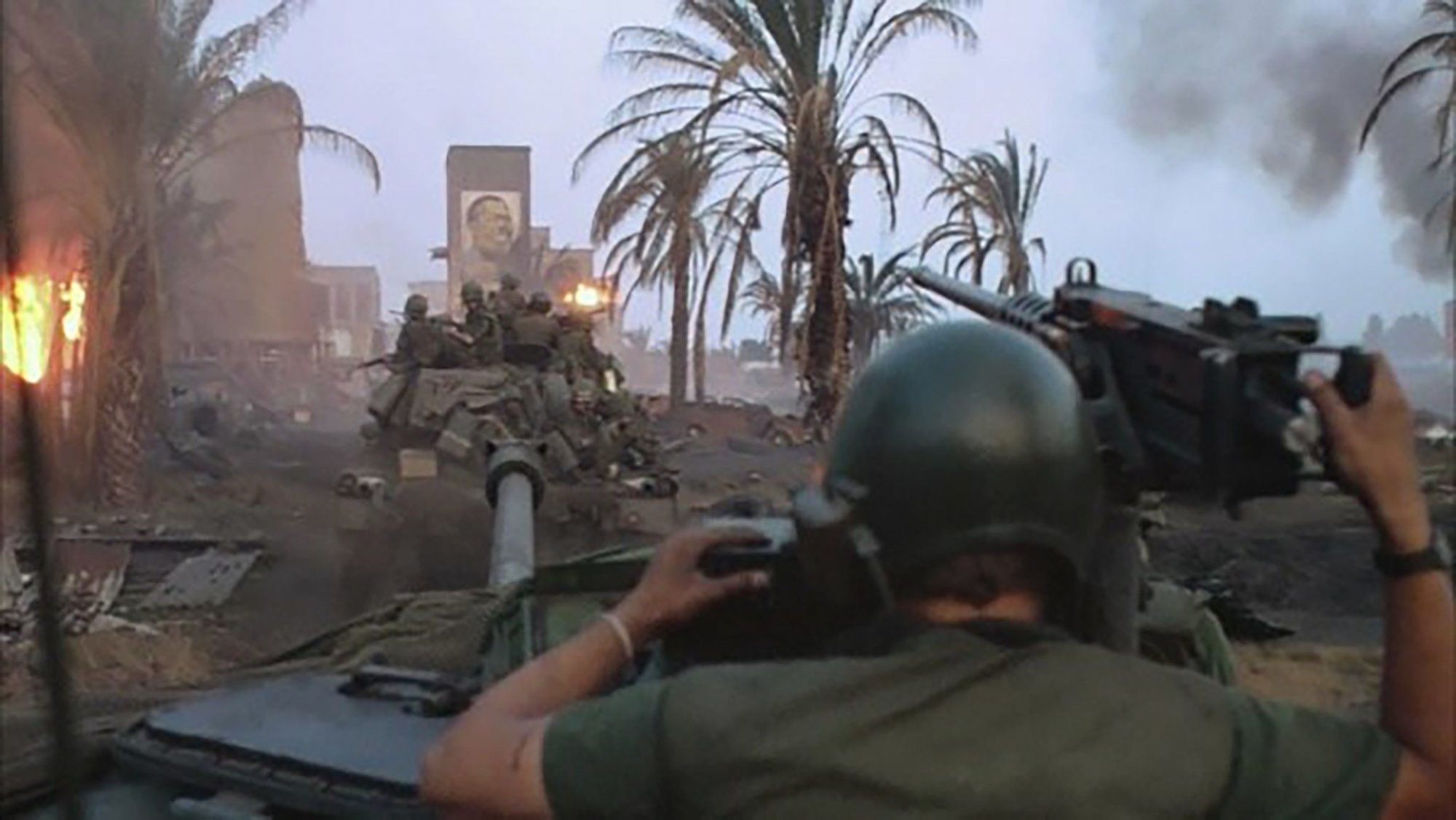
6. It took a long, long time to film
Since Kubrick was known for being an absolute perfectionist. Many of the crew members were hired for an 18-week shoot — but they stayed a lot longer than that.
The film took approximately 14-months to shoot. Seeing as it’s one of the most iconic films in history, we’d say it was worth it.
This article was originally published on We Are The Mighty. Follow @WeAreTheMighty on Twitter.
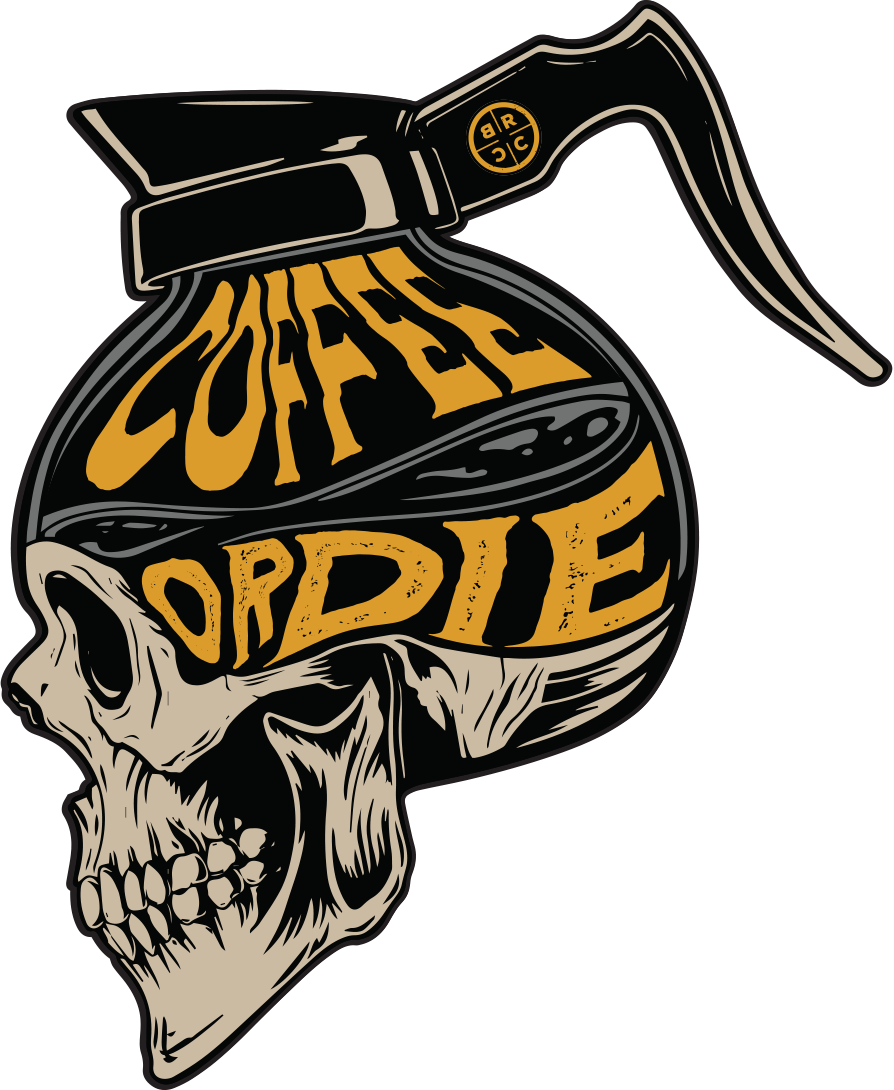
Coffee or Die is Black Rifle Coffee Company’s online lifestyle magazine. Launched in June 2018, the magazine covers a variety of topics that generally focus on the people, places, or things that are interesting, entertaining, or informative to America’s coffee drinkers — often going to dangerous or austere locations to report those stories.
BRCC and Bad Moon Print Press team up for an exclusive, limited-edition T-shirt design!
BRCC partners with Team Room Design for an exclusive T-shirt release!
Thirty Seconds Out has partnered with BRCC for an exclusive shirt design invoking the God of Winter.
Lucas O'Hara of Grizzly Forge has teamed up with BRCC for a badass, exclusive Shirt Club T-shirt design featuring his most popular knife and tiomahawk.
Coffee or Die sits down with one of the graphic designers behind Black Rifle Coffee's signature look and vibe.
Biden will award the Medal of Honor to a Vietnam War Army helicopter pilot who risked his life to save a reconnaissance team from almost certain death.
Ever wonder how much Jack Mandaville would f*ck sh*t up if he went back in time? The American Revolution didn't even see him coming.
A nearly 200-year-old West Point time capsule that at first appeared to yield little more than dust contains hidden treasure, the US Military Academy said.












